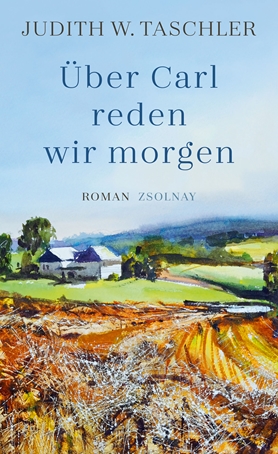»Taschler is a great storyteller who knows how to compose novels ingeniously. « Udo Schöpfer, Die Rheinpfalz
»In this family saga, in which world history is navigated in an unobtrusive and, because of that, all the more impressive way, Taschler once again proves to be a masterful narrator whose sound becomes better, more complex, and more intense with each of her books.«
Bettina Ruczynski, Sächsische Zeitung
»A captivating family novel set against a rural backdrop.«
Meike Schnitzler, Brigitte
»A great family novel... Taschler’s desire to write well-researched stories makes Tomorrow We’ll Talk About Carl a page-turner in the best sense of the word.«
Doris Kraus, Die Presse
»A village as a backdrop for universal human issues: What remains of our dreams? How much does the individual matter in the world order? And what is happiness anyway? And love? A man is caught up in the mill wheel of history: Judith W. Taschler skilfully holds together the storylines between lives and centuries.«
Dagmar Kaindl, Buchkultur
»In Tomorrow We’ll Talk About Carl, Judith W. Taschler stands in the tradition of Joseph Roth and his great works from the era of the late Austrian empire. This extensive, densely narrated and multi-generational novel has similar literary qualities.«
Wolfgang A. Niemann, Buchrezensionen
The family in the mill have almost made their peace with the idea that Carl died in the war when, in the winter of 1918, they suddenly find him standing outside their front door –
so changed that even his twin brother Eugen barely recognises him. Eugen is just visiting:
he set off for America in search of happiness a few years ago, and may even have found it there. Will he be prepared to share it with Carl? Is happiness even something you can share?
Judith W. Taschler has written an epic family novel: a spellbinding account, spanning three generations, of the fate of the Brugger family, whose life at the mill is above all defined by its women. A sensitive portrait of a village, a book about goodbyes and starcrossed love, about war and the insatiable longing for the happiness of the past.
